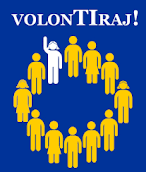There is an English translation
Razmišljala sam o stopi gladi koja se povećava iz dana u dan. Sve više dece i porodica gladuju zbog nedostatka sredstava ili novca.
U decu iz ugroženih grupa spadaju:
-deca iz domova, siromašne porodice, deca u enklavama na kosovu, deca u Africi...
-Enklava je etnička grupa odvojena od svoje matice.
Srpske porodice uglavnom žive u strahu na Kosovu i one čine
te manje enklave tj. etničke grupe.
Deca poreklom iz Srbije imaju manje privilegije od druge dece i znatno su ugroženija njihova prava.
Da li si znao/la da postoji bolest opasnija od virusa Covid-19?
Ta bolest se zove glad. Glad ima svoj lek a to je hrana, samo što to javnost ne prikazuje toliko.
Deca u Africi svakim danom umiru sve više baš zbog gladi i bolesti koja ih snalazi, nažalost umire i veliki broj novorođenčadi.
Ako si u prilici da doniraš nešto, uradi to jer tvoje malo nekome znači mnogo.
Takođe mnoge poznate ličnosti sponzorišu fondove koji su namenjeni deci.
-Pozdrav
Children from vulnerable groups
I was thinking about the rate of hunger that is increasing
day by day. More and more children and families are starving due to lack of
funds or money.
Children from vulnerable groups include:
-children from homes, poor families, children in enclaves in Kosovo, children in Africa ...
-The enclave is an ethnic group separated from its
motherland.
Serb families mostly live in fear in Kosovo and they form
those smaller enclaves, that is. ethnic groups.
Children from Serbia have fewer privileges than other
children and their rights are much more endangered.
All children should fight for their rights wherever they
live, because we do not choose in which country of the world we will be born
and how we will live.
Did you know that there is a disease more dangerous than the
Covid-19 virus?
This disease is called hunger. Hunger has its cure and that is food, only the public does not show that much.
Children in Africa are dying more and more every day because
of hunger and the disease that afflicts them, and unfortunately a large number
of newborns are dying.
If you have the opportunity to donate something, do it
because your little means a lot to someone.
Also, many celebrities sponsor funds intended for children.
-Greeting


































